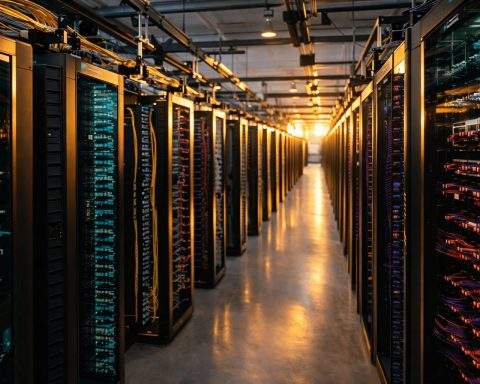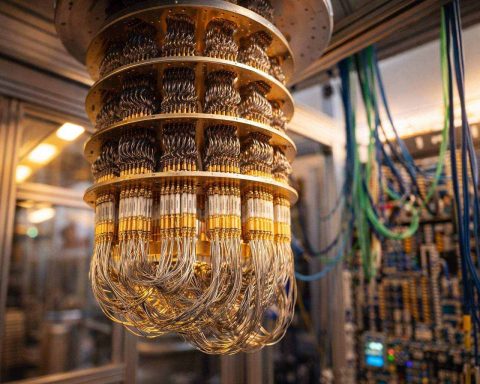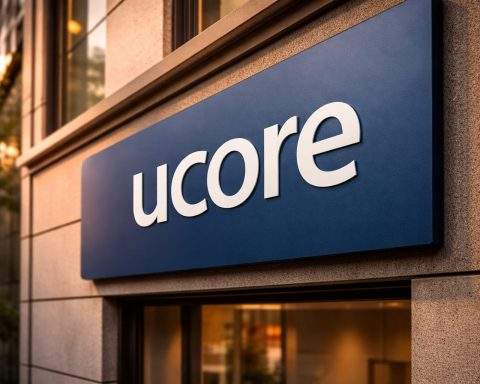- Dow Jones Industrial Average hit an intraday record and closed up 0.08% on Friday, while the S&P 500 fell 0.3% and the Nasdaq dropped 0.4%.
- The U.S. 10-year Treasury yield rose to about 4.32% as traders priced in Fed rate cuts later this year.
- San Francisco Fed President Mary Daly said two rate cuts sometime this year could be appropriate given cooling labor markets and above-target inflation.
- Gold rose to around $3,340 per ounce, near record highs.
- Bitcoin briefly traded at a record $124,500 on Thursday before retreating to about $117,000 on Friday.
- OpenAI unveiled GPT-5 and Anthropic released Claude for finance, while SAP and Dassault Systèmes fell 10–14% since mid-July.
- Intel stock jumped nearly 3% on Friday after reports the U.S. government may take an equity stake in the company.
- Associated British Foods agreed to acquire Hovis for about £75 million, creating a UK bread group with roughly 24% market share.
- A U.S. appeals court paused enforcement of a $16.1 billion judgment against Argentina’s state oil company YPF, delaying a potential transfer of its 51% stake to creditors.
- Brent crude settled around $66.85 per barrel and U.S. crude near $62.80 as the IEA warned world oil supply would rise about 2.5 million barrels per day in 2025.
Global Markets at Record Levels
Stocks Near Peaks: Global markets hovered around record highs. On Wall Street, the Dow Jones Industrial Average hit an intra-day record before inching up 0.08% by Friday’s close reuters.com. The S&P 500 and Nasdaq Composite, however, dipped 0.3% and 0.4% respectively as tech and financial shares pulled back reuters.com. Still, one strategist noted the rally’s resilience: “This market continues to move higher and the story is just earnings and margins”, with strong U.S. corporate profits buoying sentiment reuters.com. U.S. retail sales data showed consumers remain resilient (July sales rose 0.5% month-on-month) even after a hotter-than-expected producer price spike, which briefly rekindled inflation worries reuters.com. In Europe, the pan-European STOXX 600 index touched a five-month high before ending flat on the week, supported by a “largely positive earnings season” across the continent reuters.com. The MSCI All-Country World Index also held near record territory 1 .
Central Bank Signals: Bond markets hinted at shifting monetary tides. U.S. Treasury yields climbed (the 10-year up to ~4.32%) as traders hedged for Federal Reserve rate cuts later this year reuters.com. In a late-Friday interview, San Francisco Fed President Mary Daly affirmed that “two [rate cuts]… sometime this year” could be appropriate given cooling labor markets and above-target inflation reuters.com. Traders still largely expect the Fed’s first post-tightening rate reduction in September, but odds of a larger 50 bp cut have vanished after this week’s data energynews.oedigital.com energynews.oedigital.com. The U.S. dollar softened broadly on these dovish cues – the dollar index slipped to 97.85 reuters.com, a multi-month low – boosting the euro near $1.17 reuters.com and propelling the yen higher. Gold prices ticked up to around $3,340/oz, near record highs, as investors positioned for easier policy reuters.com 2 .
Asia & Emerging Markets: Asian equities staged an uneven rebound Friday after initially stumbling on the U.S. inflation surprise. Japan’s Nikkei 225 surged 1.6%, nearing record levels, after data showed Japan’s economy grew an annualized 1.0% in Q2, beating forecasts reuters.com energynews.oedigital.com. In China, softer July retail sales and output stoked expectations of stimulus; the blue-chip CSI 300 index rose 0.8% on hopes Beijing will act energynews.oedigital.com. Hong Kong’s market lagged, dropping 1.1% amid property sector concerns energynews.oedigital.com. Several emerging markets were buoyed by the prospect of U.S.–Russia détente: a highly anticipated summit in Alaska between U.S. President Donald Trump and Russia’s Vladimir Putin raised faint hopes for progress on ending the Ukraine war. European assets retain a “risk premium” due to the conflict, one fund manager noted, but any ceasefire “will ultimately pare that back” – especially for European currencies and commodities reuters.com. (Notably, Ukraine’s bonds have stalled at distressed levels ~55¢ on the dollar as investors await concrete peace prospects reuters.com.) Ultimately, no breakthrough emerged – the leaders met Friday but “yielded no agreement” on halting the war, though both called the talks “productive” reuters.com. Markets largely took the summit in stride. “Barring something truly outrageous…markets are not treating it as important” from a valuation standpoint, an analyst observed, reflecting tempered expectations 3 .
Oil, Inflation & Crypto: Global inflation developments were mixed. Crude oil prices fell sharply on Friday, hitting ~2-month lows, as supply outpaced demand. Brent crude slid about 1.5% to ~$66.85/barrel reuters.com. A mid-week report from the International Energy Agency warned that world oil markets look “ever more bloated”, with supply growth (driven by unwinding OPEC+ cuts) far outstripping demand reuters.com reuters.com. That oversupply outlook, plus the Trump-Putin talks (which eased some geopolitical risk), weighed on oil. Meanwhile, Bitcoin briefly smashed a new record, trading up to $124,500 on Thursday, before pulling back to ~$117,000 by Friday reuters.com. Analysts noted “Bitcoin’s failure to overcome the $125,000” threshold likely signals a consolidation phase ahead energynews.oedigital.com. Still, crypto enthusiasm remains high – more on that in the finance section.
Technology & Innovation
AI Stocks Whipsaw Europe: A new generation of artificial intelligence models is rattling tech stocks – especially in Europe. This week saw OpenAI unveil its much-anticipated GPT-5 model, and Anthropic released its Claude AI assistant for finance reuters.com. The advancements stoked fears that “every iteration of GPT or Claude…is multiples more capable” and could disrupt incumbent software and IT firms reuters.com. European “AI adopter” companies – those integrating AI into their services – plunged. Germany’s SAP and France’s Dassault Systèmes tumbled earlier in the week, and by Friday shares of UK’s Sage and France’s Capgemini were down 10–14% since mid-July reuters.com reuters.com. This “shoot first” selloff reflects doubts about whether traditional software, data and consulting firms can keep up. “The market’s thinking: ‘oh, wait, [new AI] challenges this business model’,” explained Kunal Kothari of Aviva Investors reuters.com. The rout stands in stark contrast to the broader market: while these European AI adopters sank into correction territory, major U.S. tech indices scaled records largely thanks to AI excitement reuters.com. Some analysts expect investors will eventually differentiate winners from losers, but for now, high-valued European tech names have been hit hard. Exacerbating the pain, many were priced at rich multiples (SAP still trades ~45× earnings). “High valuations made them vulnerable to any negative news,” noted one hedge fund CIO 4 .
Silicon Shake-Up – Intel and Meta: In the U.S., chipmaker Intel’s stock jumped nearly 3% Friday on an extraordinary news report: the U.S. government may take an equity stake in Intel reuters.com. Bloomberg reported President Trump’s administration is exploring buying a piece of the struggling semiconductor giant to bolster its turnaround reuters.com. The revelation followed a meeting between new Intel CEO Lip-Bu Tan and Trump, who has aggressively pushed to “shore up” domestic chip manufacturing reuters.com reuters.com. Analysts said federal backing could be a “game-changer” for Intel by giving it time and funding to revive its loss-making chip foundry business reuters.com – though Intel still faces a weak product pipeline and fierce competition. The mere prospect of government aid, however, lifted hopes that U.S. chip policy will further tilt in Intel’s favor. Under Biden, Intel was a major beneficiary of 2022’s CHIPS Act incentives; now, Trump appears willing to intervene even more directly (his administration recently made the Pentagon a top shareholder of a rare-earths company as well 5 ).
Over at Meta Platforms, the social media and VR giant is shaking up its AI efforts yet again. Meta reportedly plans its fourth reorganization of AI teams in six months, according to The Information reuters.com. CEO Mark Zuckerberg has repeatedly shuffled Meta’s AI research and product groups as it races to keep pace in generative AI – an area where rivals OpenAI (backed by Microsoft) and Google have leapt ahead. The latest overhaul aims to better integrate Meta’s large-language models into Instagram, Facebook, and its metaverse projects. Investors are watching if these changes can finally translate Meta’s hefty AI investment into new revenue streams.
Tech IPOs & Startups: The IPO market for tech and fintech firms is cautiously reopening. Via, a New York-based transit-tech startup, publicly filed for a U.S. IPO on Friday. Via – which provides on-demand public transport and ride-pooling software – revealed its first-half 2025 revenues jumped 27% year-on-year reuters.com. The company aims to tap public markets as cities worldwide invest in smart transit solutions. In the crypto realm, Gemini, the digital asset exchange founded by the Winklevoss twins, also filed for an IPO and disclosed eye-opening numbers. In the six months through June, Gemini’s revenue fell to $68.6 million while its net loss ballooned to $282.5 million reuters.com – a stark reversal from a $41 million loss a year prior reuters.com. The filing came just days after Bullish, another crypto exchange, made a strong market debut reuters.com reuters.com. Gemini said it would use IPO proceeds to pay down debt and join what has become a “wave of digital-asset firms seeking to tap public markets” amid improving investor sentiment reuters.com reuters.com. Its listing on Nasdaq (ticker “GEMI”) would make Gemini the third publicly traded crypto exchange in the U.S., after Coinbase and Bullish reuters.com. Crypto industry watchers caution that Gemini’s heavy losses – and ongoing regulatory uncertainties in the U.S. – could test investor appetite.
Finance & Policy
Fed Pulls Back Crypto Oversight: In regulatory news, the U.S. Federal Reserve scrapped its “novel activities” supervision program on Friday – a program created in 2023 to police banks’ cryptocurrency and fintech ventures reuters.com. Going forward, the Fed will integrate crypto oversight into its standard bank exams, saying the dedicated program was no longer needed now that regulators better understand the risks reuters.com. The move, announced after market close, effectively streamlines how U.S. banks’ digital asset activities are monitored. It comes as part of a broader recalibration of crypto regulation; industry analysts noted it could slightly ease compliance burdens for banks dabbling in crypto, though the Fed emphasized it is not loosening standards, only folding them into routine supervision reuters.com. The decision follows other crypto policy shifts as Washington reassesses oversight of the fast-evolving sector.
Central Bank Watch: As mentioned, Fed officials are teeing up rate cuts—Daly’s comments reinforced market expectations that the first Fed rate reduction since 2020 is likely in September reuters.com. Across the Atlantic, the European Central Bank had already signaled a pause after hiking in July, and bond yields in Europe trickled lower this week amid cooling inflation. One side effect: global bond markets have been oddly calm even as equities rally. U.S. Treasury volatility sank to summer lows – a puzzling dynamic that some attribute to seasonal lull and others to growing confidence in a soft landing. Currencies saw notable moves: the British pound and euro both strengthened (the euro +0.5% on the week reuters.com), while China’s yuan lingered near 15-year lows despite efforts by Beijing to prop it up. Emerging market central banks, meanwhile, are tilting dovish – Brazil and Chile cut rates earlier this month – adding to the sense that the global tightening cycle is ending.
Banking & Deals: In banking, an unusual transatlantic tie-up made headlines: a private equity firm founded by Jared Kushner (former White House adviser and Trump’s son-in-law) is reportedly buying a ~8% stake in UK digital bank OakNorth reuters.com. Sky News broke the story, highlighting how U.S. investors are seeking bargains in Europe’s fintech sector. Separately, shares of Standard Chartered fell over 7% in London after a U.S. lawmaker called for a probe into the bank for alleged sanctions evasion related to Russia reuters.com. The Republican congressman’s letter urged scrutiny of StanChart’s compliance with Ukraine-war sanctions, catching the bank in the geopolitical crossfire. StanChart denied wrongdoing, but the headline hit added to pressure on a stock already trading at a discount.
Finally, Argentina received a financial lifeline from the U.S. courts. A U.S. appeals court granted Argentina’s request to pause enforcement of a $16.1 billion judgment against its state oil company, YPF reuters.com reuters.com. The ruling halts (for now) a prior order that Argentina turn over its 51% stake in YPF to creditors while the country appeals. It’s a major relief for Buenos Aires: President Javier Milei’s government had warned that losing control of YPF would cause “irreparable” economic harm reuters.com. Argentina is battling multiple legal and economic fronts – including a debt crunch and soaring inflation – so the temporary stay buys it time in one of the biggest sovereign-vs-investor showdowns in years. The case stems from YPF’s 2012 renationalization, and litigation funder Burford Capital (which bankrolled the plaintiffs) stands to gain if the judgment is ultimately enforced reuters.com. For now, though, Argentina has staved off an immediate $16 billion hit, easing pressure on its financial system.
Energy & Commodities
Oil Slumps on Supply Glut Fears: Crude oil prices slid notably over the past two days, dragged to their lowest levels since June by a mix of ample supply and fading geopolitical risk. Global benchmark Brent crude fell below $67, extending losses after the International Energy Agency (IEA) warned of a growing surplus. The IEA’s August report noted OPEC+ producers have been unwinding output cuts faster than expected, and non-OPEC supply (U.S., Brazil, Guyana, etc.) continues to climb reuters.com reuters.com. It now projects world oil supply will rise 2.5 million barrels/day in 2025, far outpacing demand growth (~0.68 million bpd) reuters.com reuters.com. “Oil market balances look ever more bloated,” the IEA said pointedly reuters.com. The agency trimmed its demand forecasts for this year and next, citing “lacklustre demand” and weak consumer confidence in major economies reuters.com. On the OPEC side, the cartel’s own outlook is less bearish – OPEC still sees demand rising almost twice as much as IEA does – but traders seemed to heed the warning of oversupply. Brent and U.S. WTI each lost roughly 3% this week. Notably, Trump’s trade policies are adding pressure: new U.S. import tariffs have raised concerns about slower economic growth and thereby weaker oil demand reuters.com. By Friday, Brent settled around $66.85 and U.S. crude ~$62.80 reuters.com, despite mid-summer typically being peak demand season. Some support could emerge if Chinese buyers take advantage of low prices to fill strategic reserves – the IEA observed continued Chinese stockpiling that helped buoy prices earlier in the year reuters.com. But unless demand surprises to the upside or OPEC reins in output again, traders fear a supply glut into 2026.
Gas & OPEC Deals: In a major energy investment deal, Saudi Aramco signed an $11 billion agreement to monetize its Jafurah gas assets reuters.com. Under the lease-and-leaseback deal, a BlackRock-led consortium will take a 49% stake in Aramco’s new subsidiary owning Jafurah’s gas processing and NGL facilities, while Aramco leases them back for 20 years reuters.com reuters.com. The $100+ billion Jafurah project is Saudi’s ambitious push into shale gas (one of the largest such projects outside the U.S.), and this transaction effectively raises cash up front to help Saudi Aramco diversify and fund expansion. It’s the latest in a string of big-ticket infrastructure deals by Gulf oil giants tapping global investors for capital. Aramco will retain 51% ownership of the Jafurah venture, with the rest held by the international consortium reuters.com reuters.com. The deal structure mirrors Aramco’s prior pipeline transactions and highlights how petrostates are leveraging stable energy assets to attract foreign funding. Separately, industry sources say Mexico’s Pemex is preparing a major overhaul of its Deer Park refinery in Texas in October energynews.oedigital.com energynews.oedigital.com, temporarily shutting about 300,000 bpd of capacity for maintenance. And in the U.S., Phillips 66 had to cut gasoline output at its Bayway refinery after a fire – news that gave a brief lift to refining margins 6 .
Energy Policy – Renewables Hit a Snag: The renewable energy sector was jolted by a policy change out of Washington. The U.S. Treasury Department, following President Trump’s directives, unveiled stricter rules for wind and solar project tax credits reuters.com reuters.com. Trump’s new tax law is phasing out renewable subsidies over the next two years, and the revised rules tighten the criteria for projects to qualify before the sunset. Notably, large solar and wind farms must now show “substantial physical work” is underway – simply spending 5% of project costs (a previous safe-harbor practice) no longer suffices reuters.com reuters.com. Developers had used that 5% rule for years to lock in credits, but for new utility-scale projects starting construction after Sept. 2, 2025, continuous construction progress will be required reuters.com. Small installations under 1.5 MW (e.g. residential solar) are exempt and can still use the old safe-harbor, softening the blow for rooftop solar reuters.com. Renewable energy advocates blasted the change. “This is yet another act of energy subtraction from the Trump administration…American families and businesses will pay more for electricity as a result,” warned Abigail Ross Hopper, CEO of the Solar Energy Industries Association reuters.com. The industry argues the rules undermine the intent of Congress (which had extended clean energy credits in prior legislation). Indeed, by forcing projects to be truly shovel-ready, some developers may rush to meet mid-2026 deadlines or risk losing the 30% federal tax credit. The solar sector’s response was mixed: solar manufacturing stocks initially fell on the news, though some rebounded after details showed residential solar was spared. Even so, several U.S. solar and wind firms said they might delay projects lacking full permits or equipment, to avoid being caught by the new requirements. With Trump’s “One Big Beautiful Bill Act” (as he dubbed his tax package) aiming to boost fossil fuels and domestic industry, renewables now face a tougher investment climate reuters.com 7 .
Geopolitics & Energy Flows: President Trump made waves by stating no imminent plans to penalize China for buying Russian oil reuters.com. At the Alaska summit, Trump indicated he would not immediately sanction China’s imports of Russian crude – a stance that reassured some in the oil market that Chinese demand would not be disrupted. (China has been purchasing Russian oil at discounts amid Western sanctions, and there were rumors the U.S. might crack down). Trump’s comment eased concerns of a new front in the oil trade war. Nonetheless, the existing G7 price cap and EU embargo continue to keep Russian Urals crude trading below global prices. In Europe, natural gas prices fluctuated after news of worker strikes at Australian LNG facilities (which threaten a chunk of global LNG supply). Dutch TTF gas futures spiked early in the week on that risk but pared gains by Friday as talks progressed. Overall, energy markets are balancing short-term disruptions against a backdrop of ample inventories and, increasingly, the prospect that a slowing economy could sap demand into 2026.
Corporate Earnings Highlights
Strong Earnings Fuel Rally: The August earnings season is winding down, and results have broadly surprised to the upside, especially in the U.S. Roughly 85% of S&P 500 companies beat profit estimates for Q2, according to LSEG data, marking the third straight quarter of upside surprises. This strength in earnings – particularly big tech and consumer giants – has underpinned equity gains. “Inflation in services is easing, and in a services-based economy like ours, this is good for profit margins,” noted The Wealth Consulting Group’s chief strategist, pointing to improving cost pressures reuters.com. Indeed, many companies reported margin expansion as input costs (like freight and commodities) fell from last year’s peaks. That theme showed up in sectors from airlines to retailers. Investors have rewarded the positive results, though a few disappointments suffered harsh blows.
Tech & Industry Leaders:Cisco Systems exemplified the upbeat narrative. The networking equipment maker delivered better-than-expected fourth-quarter earnings and then issued bullish guidance on the back of surging AI-driven demand. Cisco said orders for its AI-centric hardware exceeded $800 million in Q4 alone, more than double its initial target for the year reuters.com. CEO Chuck Robbins trumpeted that hyperscalers like Microsoft and Google are “ramping up spending” on infrastructure, which is translating into strong Cisco sales reuters.com. The company forecast the coming quarter’s revenue above Wall Street estimates, sending a clear signal that the AI boom is boosting even legacy tech firms reuters.com reuters.com. Cisco’s stock initially popped on the rosy outlook. Similarly, chip designer Nvidia (due to report next week) saw its shares hit all-time highs during the week on anticipation of record AI chip sales – traders are betting Nvidia will again blow past forecasts as it did last quarter. In contrast, Applied Materials (a U.S. semiconductor equipment maker) struck a cautious tone, noting weaker demand from China due to trade curbs; its shares sank 4% after it warned tariffs and export restrictions create uncertainty reuters.com. That warning rippled to ASML in Europe, whose stock fell in sympathy 8 .
Pandora’s Plunge: One of the biggest earnings shockers came from Pandora, the world’s largest jewelry retailer. The Danish company’s stock cratered 18% in one day, its worst drop in seven years, after Pandora flagged weakening sales in key European markets reuters.com. Shoppers on the continent, it appears, are pulling back on discretionary buys like charms and bracelets amid economic worries. The sales slowdown caught analysts off guard – Pandora had been growing earlier in the year. The steep selloff wiped out over $2 billion of its market value and served as a warning that European consumer demand is softening. Luxury and retail names across Europe wobbled in sympathy, though U.S. retail bellwethers (like Walmart and Target) have yet to report their mid-August results; investors will watch if U.S. consumer spending shows any similar cracks or if it remains robust thanks to higher wages and excess savings.
Manufacturers & Tariffs: In the heavy industry space, Deere & Co. delivered a mixed picture. The iconic farm and construction equipment maker beat analyst forecasts for its fiscal third quarter earnings reuters.com reuters.com, but that was overshadowed by mounting challenges. Deere’s quarterly profit fell 25% from a year ago (net income $1.29B vs $1.73B) as revenue slipped 9% reuters.com. It also trimmed its full-year outlook, cutting the high end of its net income forecast to $5.25B (from $5.5B) amid softer demand reuters.com. The culprit: Trump’s import tariffs are squeezing margins. Deere warned it now expects $600 million in tariff costs this year, $100M more than previously thought reuters.com. U.S. steel and component tariffs have raised input prices just as farmers, facing low crop prices, delay machinery purchases. “Tariff uncertainty and deflated commodity prices have made farmers cautious…and hesitant to accept higher machinery prices,” explained a CFRA analyst reuters.com. Deere’s CEO noted the company is managing inventory tightly and cutting costs to ride out the downturn reuters.com. But upon the report, Deere’s stock dropped 7% intraday reuters.com, its worst earnings-day plunge in years, reflecting fears that trade policy and weak agriculture markets will weigh on future quarters. Peer equipment makers like Caterpillar also saw shares dip in sympathy.
Miscellaneous Earnings: Other notable reports included Klarna, the Swedish fintech “buy-now-pay-later” firm, which announced its Q2 revenue grew 20% year-on-year as it edges toward profitability reuters.com. Klarna, still privately held, has sharply reduced losses after a brutal 2022, indicating fintechs are adapting to higher rates and credit stress. In Asia, Salik, Dubai’s highway toll operator, posted a 50% surge in Q2 profit and raised its full-year guidance, boosting Dubai’s stock index reuters.com. And in the food sector, Associated British Foods noted improving results in its grocery division – context for its Hovis acquisition discussed below.
Overall, corporate earnings have provided a solid foundation for global markets. Even as certain sectors (like European consumer goods or industrials exposed to tariffs) show weakness, the aggregate trend – especially for tech, travel, and services – is positive. With roughly 90% of S&P companies done reporting, S&P 500 aggregate earnings are on track to rise about 12% in Q2, marking a strong rebound from last year’s declines. This earnings momentum, alongside hopes of central bank easing, has been a key driver of the year’s market gains.
M&A and Corporate Deals
Global Dealmaking Resurgent: Big-ticket mergers and acquisitions (M&A) roared back to headlines, spanning sectors and continents. Globally, dealmaking is up year-to-date, bankers note, driven by corporate boards’ quest for growth, falling financing costs as interest rates ease, and the transformative impact of the AI boom reuters.com. The past 48 hours alone saw a flurry of deal announcements and speculation:
- Accenture’s Cyber Spree: Consulting giant Accenture agreed to buy Australian cybersecurity firm CyberCX in a deal valued at over A$1 billion (US$650 million) reuters.com. It’s Accenture’s largest-ever cyber acquisition and underscores surging demand for digital security services amid “increasingly sophisticated cyber threats” to businesses reuters.com. CyberCX, formed in 2019 via a 12-firm roll-up, has 1,400 staff across Australasia, London and New York reuters.com. By scooping it up from private equity owner BGH, Accenture bolsters its presence in the Asia-Pacific cyber market. This purchase is part of a wave of consolidation in cybersecurity, as global firms race to acquire talent and clients following high-profile hacks (like Optus’s 2022 breach of 10 million users, which CyberCX’s leadership had ties to reuters.com reuters.com). Accenture has now made around 20 security acquisitions since 2015 reuters.com. The CyberCX deal also highlights Australia’s status as a cyber battleground after multiple big attacks. Australian officials welcomed the deal as a vote of confidence in the country’s cyber sector.
- Bread Mega-Merger in UK: In a classic consolidation play, Associated British Foods (ABF) – owner of Kingsmill bread – announced it will acquire Hovis, the 135-year-old British bread brand reuters.com. ABF is paying roughly £75 million for Hovis reuters.com, which is currently owned by private equity. The merger will create a UK bread powerhouse, combining the nation’s #2 and #3 bread brands (Kingsmill and Hovis) under one roof reuters.com reuters.com. Both businesses have struggled with declining demand for packaged bread amid changing diets and competition from artisanal bakeries reuters.com. By joining forces, ABF expects to “drive significant cost synergies” in production and distribution and better compete with market leader Warburtons reuters.com. ABF’s CEO George Weston said the deal will “create a UK bakeries business that is both profitable and sustainable long-term” reuters.com – essentially betting that consolidation can return the sliced bread category to health. Regulators will scrutinize the deal given the combined group’s sizeable market share (~24% of UK bread, though still behind Warburtons’ 28%) reuters.com. However, analysts note that both Hovis and ABF’s baking unit have been loss-making; one industry precedent suggests authorities may approve it to save an iconic brand from failure reuters.com. ABF’s shares ticked up on the news, as investors saw a sensible, if small, bolt-on acquisition.
- Private Equity Eyes Tech Suppliers: Mid-cap tech firms are squarely on private equity radar. Switzerland’s u-blox, a maker of GPS chips and automotive software, confirmed it is in takeover talks with U.S. buyout firm Advent International reuters.com. While “no transaction is certain” yet reuters.com, the news sent u-blox’s stock soaring 19% to a three-year high reuters.com reuters.com. Bloomberg reported any deal would likely value u-blox north of $1.1 billion (1 billion Swiss francs) reuters.com reuters.com. The approach comes after u-blox made progress cutting losses and focusing on high-growth positioning technologies for cars, drones and farm equipment reuters.com. If Advent proceeds, it would mark another private equity bet on Europe’s tech hardware niche, following recent buyouts in the sensor and semiconductor space. With abundant dry powder and credit markets improving, PE firms are actively seeking tech targets, and many founders are willing to sell at attractive premiums. A successful u-blox deal could also spark speculation about peers in the IoT and automotive chip arena.
- Deals in Brief: Elsewhere, Third Point Investors Ltd, a London-listed fund tied to Dan Loeb, won shareholder approval to acquire reinsurance firm Malibu Life Re – an unusual move blending hedge fund and insurance balance sheets. And in emerging markets, Dubai’s Emirates NBD bank agreed to buy India’s asset management arm of IDFC for $178 million, expanding its footprint in India’s growing mutual fund industry (this deal was announced on the 15th, highlighting Gulf investors’ interest in South Asia). Meanwhile, deal rumors were put to rest in advertising: MSQ Partners ruled out a potential merger with Martin Sorrell’s S4 Capital, according to a report, quelling industry chatter about a new ad powerhouse.
Outlook: The burst of M&A activity suggests confidence among executives that valuations are reasonable and economic conditions are set to improve. With borrowing costs off their peaks, more “mega-deals” could be on the horizon, bankers say – especially in sectors like healthcare, energy transition, and technology. However, regulatory scrutiny remains a wildcard (as ABF/Hovis will discover). In the U.S., antitrust regulators have recently challenged several large mergers, so corporate lawyers are structuring deals carefully to avoid monopoly concerns. Still, the overall M&A climate in 2025 is far warmer than last year’s doldrums. As one analyst put it, companies flush with cash are done hoarding – they’re now on the hunt for strategic acquisitions to drive growth in a slower economy reuters.com. The confluence of cheaper debt, high corporate cash balances, and transformative tech trends (AI, renewable energy, etc.) is proving a potent recipe for deal-making worldwide.
Sources: Reuters, Associated Press, Bloomberg, company press releases. Key reporting citations include Reuters market and sector wraps reuters.com reuters.com reuters.com reuters.com reuters.com, which provided expert quotes and data on the developments discussed.






